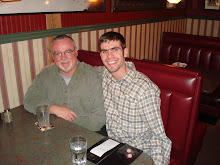Joel Spring and Ronald Takaki have been able to sift through and address the ideological fallacies that, for our founding fathers, became the pillars of the deculturalizaton process, specifically of the Native American and Jewish people. Both historians are clearly aware that the white Europeans did not come to America to establish a life separate from the of the indigenous Native American tribes and their customs. Instead, these men highlight the European understanding that their traditions, religion, rituals and general form of lifestyle are superior and meant to be the standards of assimilation. This notion was extremely bothersome for me as I was reading both texts, especially with regards to the westward expansion and complete demise of the indigenous peoples' homelands. I guess this is the general mindset when someone believes that his or her opinions/beliefs/ideas are unequivocally true and the only conclusions that can be used to interpret a particular situation. My how gravely wrong and selfish even our earliest nation became!
important quotes:
(on the deculturalization of Native Americans)
"What good man would prefer a country covered with forests and ranged by a few thousand savages to our extensive Republic, studded with cities, towns, and prosperous farms...filled with all the blessings of liberty, civilization, and religion?" (Takaki, 88).
"Now can any one doubt that this system [schools in Indian Territory] would not lift them in a single generation to a level with ourselves?" (Spring, 24).
"These Presbyterians could accept nothing less than the total rejection of the tribal past, and the total transformation of each individual Indian, a cultural destruction and regeneration to be brought about by the Gospel of Jesus Christ" (Spring, 25).
"I fought through the Civil War and have seen men shot to pieces and slaughtered by thousands, but the Cherokee removal was the cruelest work I ever knew" (Spring, 28).
(on the final frontier battle at Wounded Knee)
"After the storm passed, the soldiers threw the dead Indians into a long trench, their frozen bodies 'piled one upon another like so much cordwood, until the pit was full.' Many of the corpses were naked: the 'ghost shirts' had been stripped from the dead as souvenirs. A photograph of Big Foot lying in the snow showed the contorted body of the chief, his hands still trying to shield himself and his face fixed in a grotesque grimace by the horror he had witnessed. For Indian America, Wounded Knee violently symbolized the end of the frontier" (Takaki, 230-31).
some head-scratchers:
question #1: Why didn't the Native Americans resist or fight back against the Europeans as they were forcing them from their homelands? Was it a matter of their tribal personality & value systems not to fight back or were they just being compliant?
question #2: Besides the reputation of Andrew Jackson, which other US presidents' reputations would have been tarnished had the true stories been revealed in US and American history textbooks?
Subscribe to:
Post Comments (Atom)















No comments:
Post a Comment